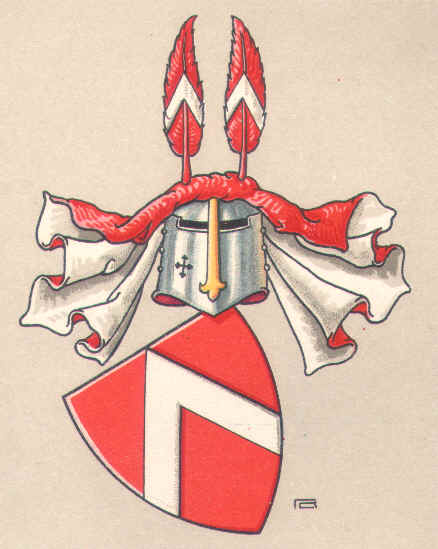
Our oldest master fathers were officials of the bishop von Osnabrueck, them were Ministeriale. The Ministerialen was originally no conditions, but an occupational group, which built themselves up as today out higher and for low placing, from unfree ones and free ones. They were indispensable for that like also today the officials for the administration commonwealth. They placed also the advisors of the religious and lay national princes and received so a meaning, which corresponded to that of the low aristocracy. It finally regarded contrary to the low service people as familiae majores et meliores, as high-standing and better families. Wigbert obviously belonged to this layer as a law officer. Also its son had such a position.
In order to recompence it for their services and them an appropriate for ensuring according to rank living costs these higher officials with landed property became beliehen. They received a piece country, on which they established themselves a house and kept house taxfree. First remained the country property national gentlemen (it was only lent), later became the Lehen hereditary property, but that inheritance had to pay deliveries (death duty), if he wanted to keep the Lehen.
With the characteristic as basic owners and advisors of the national princes shrank the distance to the low aristocracy, which ensured above all the military protection of the country. The two layers merged into conditions, as far as the richer aristocracy families did not attain territorial sovereignty and so that into the high aristocracy ascended.
The military protection of the country remained in the responsibility of the basic owners. They made themselves available and a number of people with military equipment. The existing fortune determined whether one in full rider equipment, in addition belonged among other things several horses, to begin had and also as to many people it to be announced had. Who placed the full knight equipment, knight was called. It must have also the necessary exercise with weapons, which it provided within the family and in tournaments. Knappe was called, who had not sufficient fortunes and/or was inexperienced still too young or in the weapon use.
In the outgoing Middle Ages knight and knappe could only become, who was ritterbuertig. Only knights could receive Lehen. The national offices were usually dressed by knights.

To the military services also that of the castle man belonged. The castle man was obligated to contribute to the defense of a certain castle under guidance of the castle count, castle captain or Burgvogts. This service was generally temporal or to emergencies limited and took place in the rotation, thus in a kind layer service. For it a Burglehen was entitled to the castle man which sometimes consisted of a house in the castle or in the proximity with agricultural area and additionally of a castle money, which could be paid in addition, instead of the landed property.
Our ancestors were partly knight partly only knappen, because the possession conditions were not often sufficient to equip the sometimes large child crowd knight-moderately. Correctly richly over the centuries only whole few Ledeburs were. Here I want to refer to therefore a rule, still to in 18. Century was accepted to a large extent and with the Prussian military still into the days of the realm resistance as request around marriage permission remained preserved: Who did not have income, with which it could have nourished a family, married also not. Many examples of it are in the family tree. One of it is August which originated as a youngest son from Duesse, and purposefully at journeys went, in order to become marriagable by a rich bride. After misses it had then completely large luck and inherited from the stepmother of one of it umworbenen however not consenting cousin a fortune. The inheritance made it so rich the fact that it did not need to look with the further Brautsuche no more on the money and brought in for it and its descendant after further earnings/services the count title.